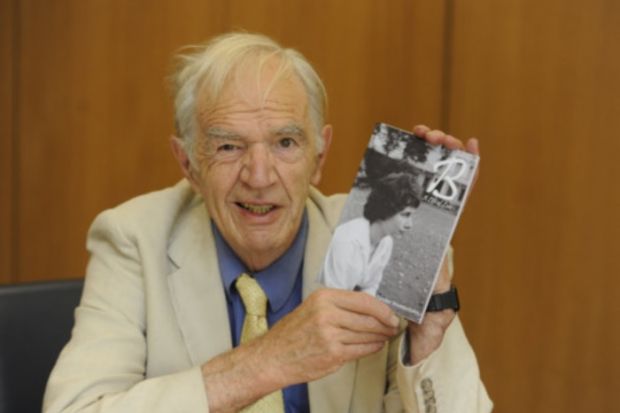An occupational psychologist who became an expert in the experience of shift workers has died.
Alexander Wedderburn was born in Edinburgh in May 1935 and attended Edinburgh Academy. He graduated with an MA in psychology and philosophy and Classics from the University of Oxford (1959). He had worked shifts in the navy as part of his national service and then, as a graduate, at Corby steelworks.
Professor Wedderburn began his academic career in the mid-1960s at Cardiff University, where he researched industrial relations. In 1968, he moved to Heriot-Watt University in Edinburgh, where he was to remain for 32 years, serving on its senate and as head of the School of Management, before eventually retiring as emeritus professor of psychology in 2000.
Although his earliest paper, written with Jeffrey Gray and frequently cited, was devoted to hearing and the theory of switching between ears, Professor Wedderburn devoted most of his research to the study of shift workers. Such employees made up about 15 per cent of the workforce, but there had been little research on sleep and shift workers, and his very practically focused work challenged many conventional practices and led to significant improvements in their working conditions.
The founding editor of the Shiftwork International Newsletter, Professor Wedderburn was also an influential president of the British Psychological Society (2003-04), only the third occupational psychologist to assume that prestigious role. On retirement in 2000, he set up a publishing company called Fledgling Press and published B: A Life of Love (2013), a tribute to his wife Bridget, who suffered from Alzheimer’s disease and died last year.
One of Professor Wedderburn’s former PhD students, Greg Bamber, now professor of management at Monash University in Australia, described him as “a great mentor. His quirky but effective way of supervising students included discussing research in various other contexts besides his office, including while they were exercising or while in the queue for Edinburgh Festival tickets (before online ticket sales). He also contributed his considerable talents to furthering the arts, social and political causes.”
“He was a big man,” added Nigel Nicholson, professor of organisational behaviour at the London Business School. “Big in stature, big in spirit, big in intellect, big in purpose. Without effort, he often dwarfed others around him, but to quote Roald Dahl’s book he was a ‘Big Friendly Giant’ – he was gentle as well as strong. We always felt good with him and ready for something interesting.”
Diagnosed with oesophageal cancer in 2014, Professor Wedderburn died on 23 February while listening to Woody Guthrie. He is survived by four children and eight grandchildren.




